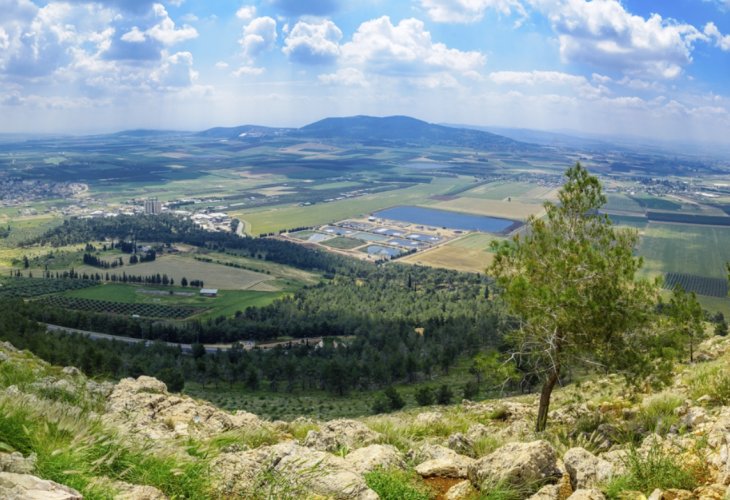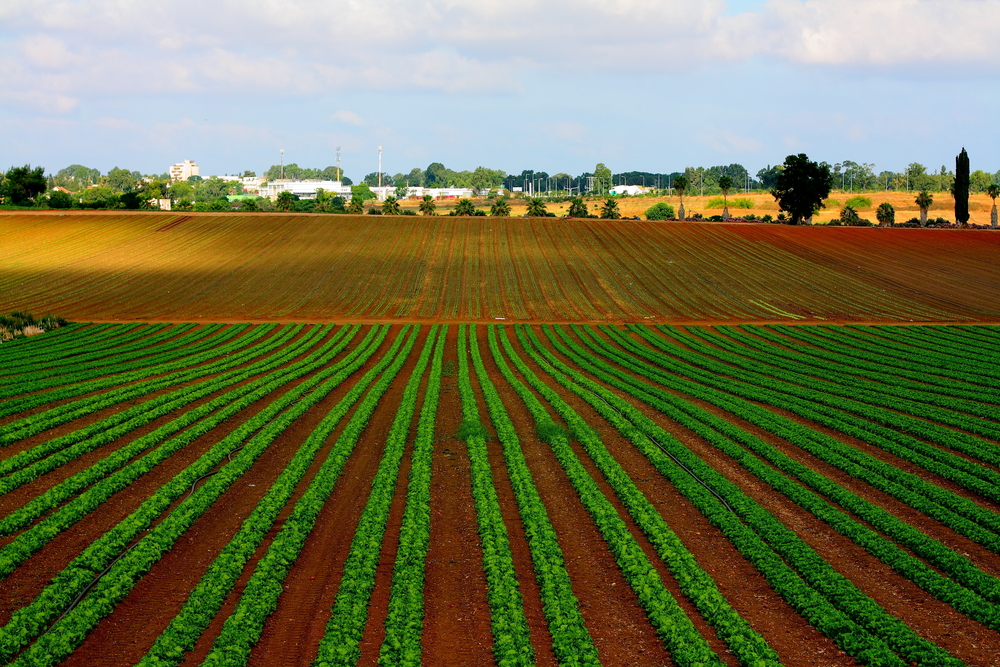Faith
The Unique Physical Blessings of the Land of Israel: Agriculture, Climate, and Divine Abundance
Explore why the Land of Israel stands apart from other countries — with its world-class fruits, diverse landscapes, perfect climate, and spiritual connection that brings physical blessings
 (Photo: shutterstock)
(Photo: shutterstock)Boaz asks: “Hi, I want to understand what makes the Land of Israel physically unique compared to other lands. The Torah praises the Land of Israel and its fruits, yet fruits and vegetables also grow abundantly in other places, and many are even imported into Israel. There are countries with very pleasant climates that aren’t as hot as ours (unfortunately, I’ve met Jews who ‘drool’ over the landscapes of foreign countries)... So I’d appreciate if you could explain to me the unique physical virtues of our Holy Land. Thank you.”
* * *
Hello Boaz, and thank you for your question.
The Land of Israel has many wondrous qualities, which manifest not only spiritually but also in its material richness.
Agriculture in the Land of Israel:
Despite its small size, Israel’s agricultural output is among the most advanced in the modern world. Israel is one of the leading producers and exporters of citrus fruits worldwide.
Luxury hotels abroad often order fruits and vegetables specifically from Israel. The finest produce (Grade A) is often exported, while surplus or lesser grades are sold locally. As reported in Yedioth Ahronoth: "Israelis love fruits and vegetables more than any other nation, yet some of the finest varieties are grown specifically for export and are rarely found in local markets."
This paradox illustrates the richness of Israel’s land — its fruits are in demand worldwide, despite local market challenges.
The Geography of Israel: Diverse and Fertile
Israel’s unique combination of mountains, plains, valleys, and varied soil types allows it to grow a vast array of crops in a relatively small area. From wheat, sorghum, and corn, to citrus fruits, avocados, kiwis, grapes, dates, and apples, Israel's land is incredibly versatile.
Fruits from mountainous regions are lighter and more aromatic, while fruits from the valleys are richer and more succulent, as the Midrash states: “Fruits of the mountains are light, fruits of the valleys are fat and rich.”
Unlike many countries whose geography limits agricultural options, Israel’s diverse terrain enables it to sustain itself abundantly without overreliance on imports.
Rain in Israel: A Direct Blessing from Heaven
Unlike Egypt, which depends on the Nile for irrigation, Israel is sustained directly by rainfall — a divine blessing that reflects God's providence. This is highlighted in Deuteronomy (11:10-11): "For the land that you are entering to possess is not like the land of Egypt... But the land you are crossing into is a land of hills and valleys, drinking water from the rains of heaven."
Rashi explains: Egypt required manual irrigation efforts, while Israel's crops are watered directly by heavenly rain, even in its elevated regions. This climatic phenomenon is astonishing, considering Israel is bordered by desert nations like Saudi Arabia and Egypt, which struggle with severe water scarcity.
Israel’s Unique Climate: A Perfect Balance Between Extremes
Geographically, Israel is situated in a remarkable location. To its south are desert lands — Saudi Arabia, Egypt, and North Africa — with hot, arid climates. To its north lie Turkey, Ukraine, and Russia, with extreme cold and long, harsh winters. Israel is right in the middle, benefiting from a moderate climate that avoids the severe extremes of its neighbors.
While summers can be hot, Israel’s heat is milder compared to the blistering deserts below. Its winters bring rainfall and cooler temperatures without the freezing conditions of Europe and Russia. Those who complain about Israel’s heat often overlook the fact that its climate is one of the most livable and balanced in the region.
 (Photo: shutterstock)
(Photo: shutterstock)Israel’s Landscapes: A Whole World in One Small Land
One of Israel’s most fascinating characteristics is its incredible variety of landscapes within short distances. Unlike countries where scenery remains uniform for hundreds of kilometers, Israel offers a diverse range of terrains — deserts, lakes, snowy mountains, forests, fertile plains, and lush hills — all within a few hours’ drive.
From the Negev Desert to the Sea of Galilee, the Dead Sea to the Golan Heights, from Tel Aviv’s beaches to Jerusalem’s ancient hills — each region feels like stepping into a different world. This diversity is a result of Israel’s geographical positioning between contrasting climates and its unique topography.
Tourists from abroad are often amazed that within a single day, they can experience landscapes that would take weeks of travel to see in their home countries.
The Spiritual Dimension of Israel’s Physical Beauty
Beyond the physical attributes, the most profound quality of Israel is its holiness. It was given to the Jewish people to fulfill Torah and mitzvot, with many commandments that can only be observed in this land. Because of this spiritual connection, Israel’s physical blessings of its rich agriculture, favorable climate, and natural beauty, are manifestations of divine providence.
As the Torah teaches, if the people of Israel remain faithful to God, the land will flourish with abundance. If however they turn away, the land will become barren. The relationship between the people and the land is dynamic and spiritual.
When we recite in Birkat Hamazon (Grace After Meals): "For the good land which You have given us" — we should say it with renewed appreciation for the unique material and spiritual gifts of Eretz Yisrael.

